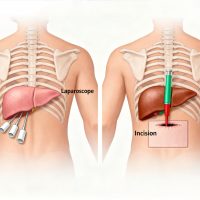Migraines are a debilitating condition that affects millions of people worldwide. As someone who has experienced the crippling pain and disruptive symptoms of migraines, I understand the frustration of trying to find relief. One of the key factors in managing migraines is identifying and avoiding potential trigger foods. In this article, we’ll explore the connection between food and migraines, uncover the common culprits, and discuss strategies to take control of your migraine symptoms through dietary changes.
Understanding the Connection Between Food and Migraines
Migraines are complex neurological disorders that can be influenced by a variety of factors, including genetics, hormones, stress, and environmental triggers. While the exact mechanisms behind the link between food and migraines are not fully understood, research has shown that certain foods and food additives can act as triggers for some individuals.
The way our bodies process and respond to different foods can play a significant role in the onset of migraine episodes. Certain compounds found in food, such as tyramine, nitrates, and caffeine, can cause blood vessels to dilate or constrict, leading to the release of inflammatory chemicals that can trigger a migraine attack.
Common Foods That Trigger Migraines
- Aged Cheeses: Fermented and aged cheeses, such as cheddar, brie, and blue cheese, contain high levels of tyramine, a compound that can trigger migraines.
- Processed Meats: Deli meats, sausages, and hot dogs often contain nitrates, which can dilate blood vessels and contribute to migraine episodes.
- Citrus Fruits: Citrus fruits, including oranges, lemons, and limes, are high in acids and can be a trigger for some people.
- Chocolate: Chocolate contains both caffeine and tyramine, making it a common culprit for migraine sufferers.
- Nuts and Nut Butters: Tree nuts, such as almonds, walnuts, and cashews, as well as nut butters, can be problematic due to their high tyramine content.
- Alcohol: Alcoholic beverages, particularly red wine, can trigger migraines due to their high tyramine levels and the dehydrating effects of alcohol.
- Caffeine: While moderate amounts of caffeine can provide some relief for migraines, excessive or sudden withdrawal from caffeine can also trigger an attack.
- Monosodium Glutamate (MSG): This flavor enhancer, commonly found in processed foods, can be a potent migraine trigger for some individuals.
The Role of Caffeine in Migraine Triggers
Caffeine is a complex factor when it comes to migraines. In some cases, moderate consumption of caffeine can actually provide relief for migraine symptoms, as it can constrict blood vessels and reduce inflammation. However, excessive or sudden withdrawal from caffeine can also trigger a migraine episode.
It’s important to understand your individual response to caffeine and find the right balance to manage your migraines. Gradually reducing caffeine intake, rather than abruptly cutting it out, can help minimize the risk of withdrawal-induced migraines.
Food Additives and Preservatives to Avoid
In addition to naturally occurring compounds, certain food additives and preservatives can also contribute to migraine triggers. These include:
- Monosodium Glutamate (MSG): As mentioned earlier, this flavor enhancer is a common culprit for migraine sufferers.
- Nitrates and Nitrites: These preservatives, found in processed meats, can dilate blood vessels and trigger migraines.
- Artificial Sweeteners: Substances like aspartame and saccharin have been linked to migraine episodes in some individuals.
Dairy and Gluten Sensitivity in Relation to Migraines
For some people, dairy and gluten sensitivity may play a role in their migraine triggers. Lactose intolerance and gluten sensitivity can cause inflammation and other physiological responses that may contribute to migraine episodes.
If you suspect that dairy or gluten may be a factor in your migraines, consider eliminating these foods from your diet and monitoring the impact on your symptoms.
The Impact of Alcohol and Fermented Foods on Migraines
Alcohol, particularly red wine, is a well-known migraine trigger due to its high tyramine content and dehydrating effects. Additionally, fermented foods, such as aged cheeses, pickles, and sauerkraut, can also be problematic for some individuals due to their tyramine levels.
Moderation is key when it comes to consuming these types of foods and beverages. Paying attention to your body’s reactions and identifying your personal triggers can help you make informed decisions about your consumption.
Identifying Your Personal Food Triggers Through an Elimination Diet
One of the most effective ways to determine your specific food triggers is to try an elimination diet. This involves removing the most common migraine-inducing foods from your diet for a set period, typically 4-6 weeks, and then gradually reintroducing them one by one to observe any changes in your symptoms.
By keeping a detailed food journal and tracking your migraine episodes, you can identify the specific foods or food groups that seem to be triggering your migraines. This information can then be used to develop a personalized migraine-friendly diet.
Managing Migraines Through a Migraine-Friendly Diet
Once you’ve identified your personal food triggers, the next step is to develop a migraine-friendly diet. This may involve:
- Avoiding Trigger Foods: Eliminate or significantly reduce your consumption of the foods that have been identified as triggers.
- Increasing Hydration: Staying well-hydrated can help mitigate the effects of some migraine triggers.
- Incorporating Migraine-Reducing Foods: Include foods that are rich in magnesium, riboflavin, and coenzyme Q10, as these nutrients have been shown to have a positive impact on migraine management.
- Maintaining a Consistent Eating Schedule: Skipping meals or having irregular eating patterns can also contribute to migraine episodes.
Conclusion: Taking Control of Your Migraines Through Dietary Changes
Migraines can be a debilitating condition, but by understanding the connection between food and your triggers, you can take an active role in managing your symptoms. Through an elimination diet, you can identify the culprits on your plate and develop a personalized migraine-friendly diet to help you regain control of your health and quality of life.
Remember, everyone’s body is different, so it’s essential to listen to your own experiences and work closely with your healthcare provider to find the most effective strategies for managing your migraines.
For more information on managing migraines, please call BIMC Nusa Dua at +62 361 3000 911 & +62 811 3896 113.














